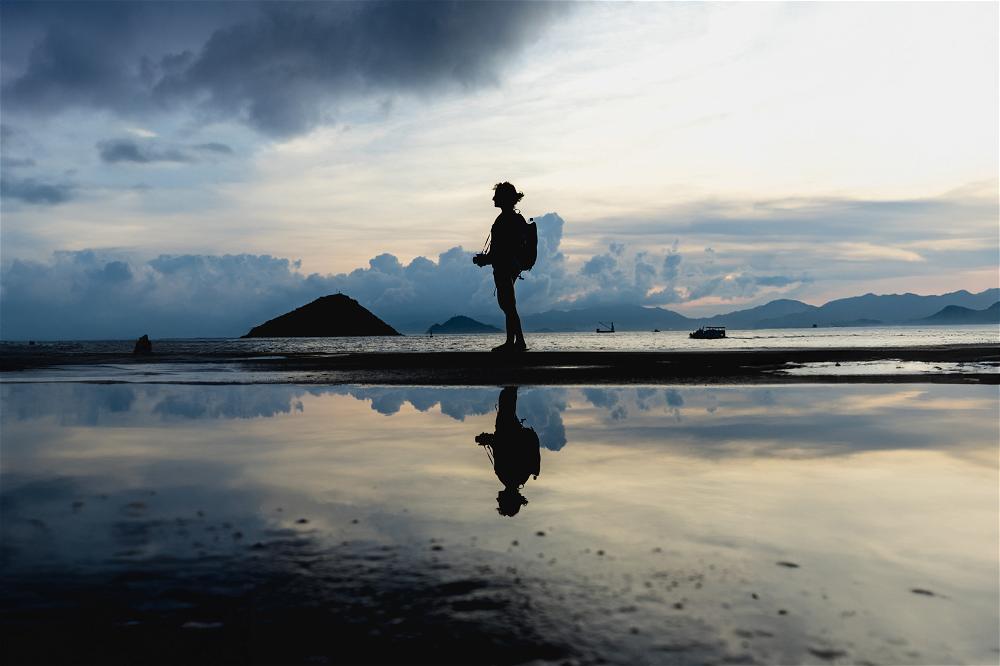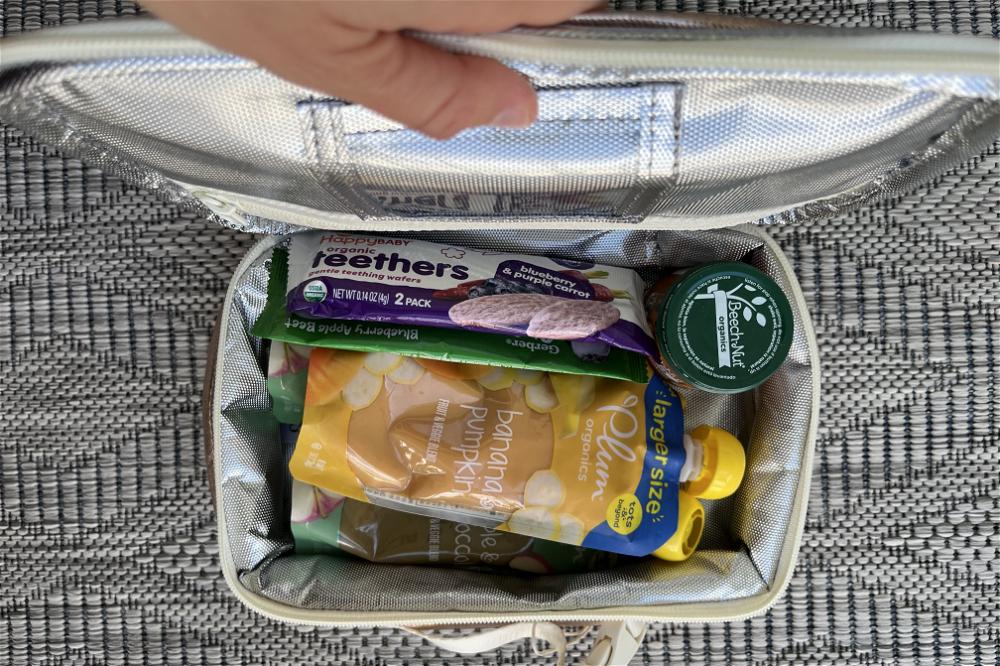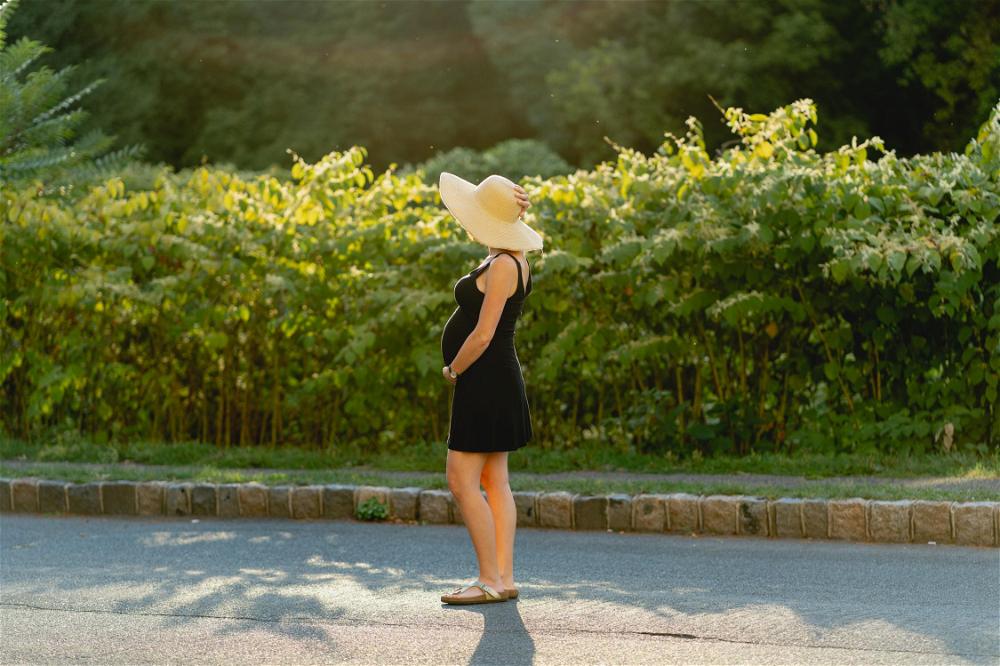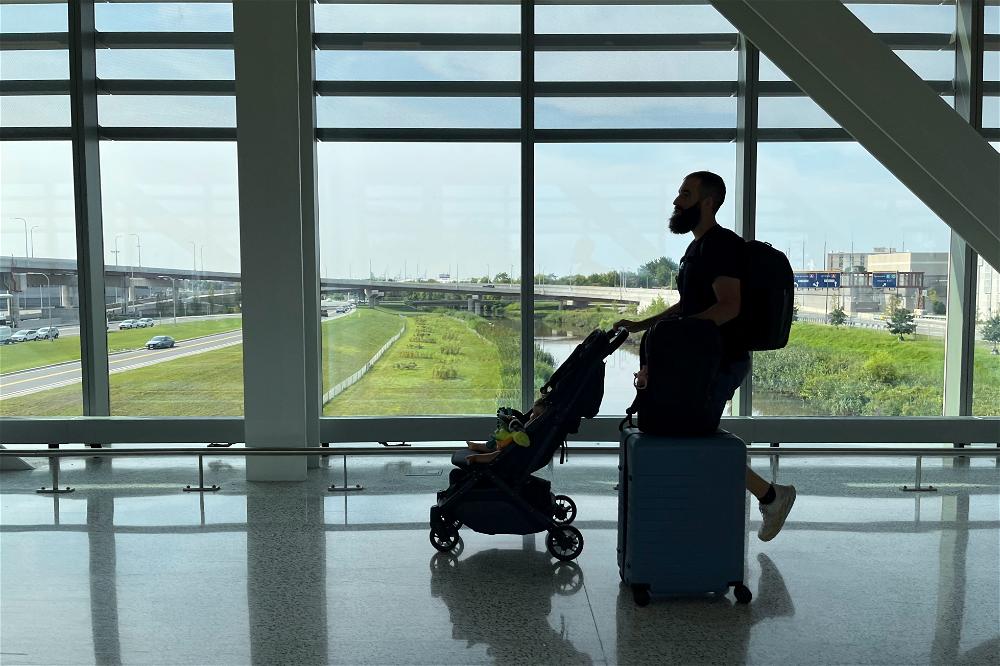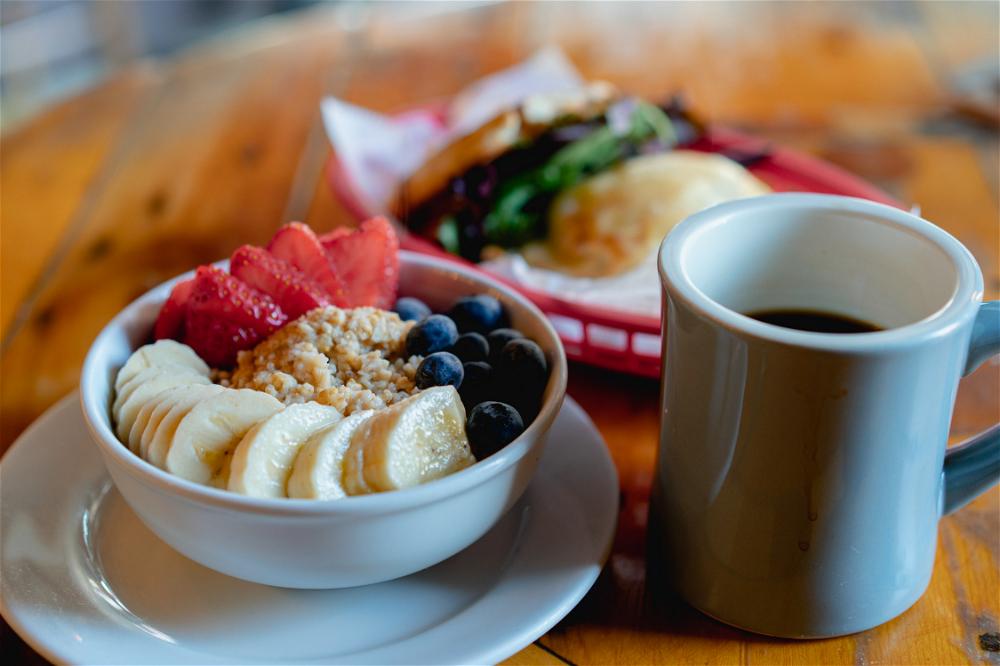19 Sustainable Travel Tips for an Eco-Friendly Mindset
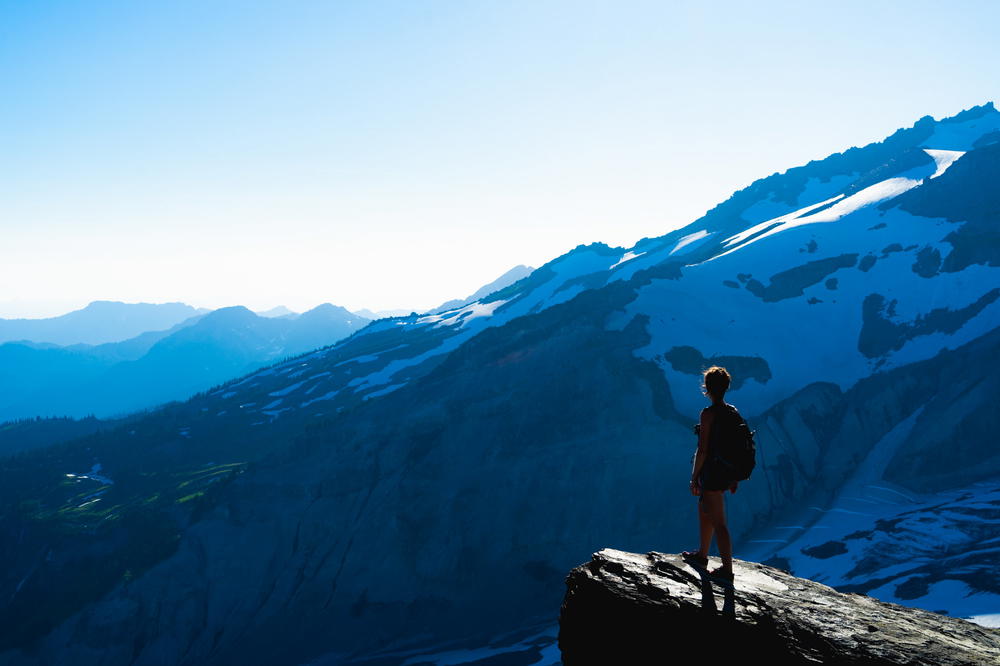
Learn how to travel more sustainably! We’re conserving resources and traveling healthier with our favorite eco-friendly products and sustainable travel tips.
This article may contain affiliate links. We earn a small commission when you purchase via those links — at no extra cost to you. It's only us (Becca & Dan) working on this website, so we value your support! Read our privacy policy and learn more about us.
Table of contents
- Ditch plastic produce bags and use reusable produce bags.
- Use our travel Tupperware or containers to avoid use of disposable snack bags.
- Save plastic bottles and use a trusty reusable water bottle for travel.
- Use a ride-share app and literally share a ride.
- Use bikes or scooters and walk where you can.
- Drink your coffee in a ‘real cup.’
- Buy local produce (and stay healthy!).
- Ask about recycling in your area, even if it’s not clear.
- Ditch the single-use plastic bags in supermarkets, drugstores and convenience stores.
- Try going vegan or decreasing meat for a week.
- Reuse plastic bags if they get wet or dirty by leaving them to dry overnight and use them again.
- Hang clothes instead of using a dryer.
- Turn off the water during different parts of your shower.
- Tell maid service not to change your towels and sheets.
- Turn your disposable silverware into use-again silverware.
- Always turn off the AC, heat, fan and light when you leave your accommodation.
- Use your travel gear until it breaks. Literally.
- Travel more slowly.
- Opt for glass bottles over plastic bottles when buying a drink at a store.
When I’m traveling, I see how different parts of the world deal with sustainability, eco-friendly products and waste. It makes me want to work harder toward the goal of traveling “greenly.”
After years of travel, there are a bunch of things I do to avoid wasting water, lowering my carbon footprint and a host of other energy-saving practices. Traveling sustainably even helps me save money.
Here are the things we do during our trips to do our part in saving the environment through these “green travel” ideas below.
Ditch plastic produce bags and use reusable produce bags.
When I met Dan, I saw that in grocery stores, he would skip plastic produce bags (the kind that you tear off from a roll) and put fruits or vegetables directly into his shopping cart. I realized how many plastic bags he was saving by doing this, and I started doing it, too.
If you want to avoid plastic and save plastic during your shopping trips, you can either skip the plastic bags on rolls at your supermarket, or use these reusable produce bags so that your onions, apples or cloves of garlic don’t float around your shopping cart.
These reusable bags are a great product to have with you, whether home or abroad, and they fold up small!
Use our travel Tupperware or containers to avoid use of disposable snack bags.
Gone are the days when we take snacks in disposable plastic baggies.
In Peru and Colombia, we developed a collection of plastic containers from grocery store items (like dried fruit or nuts) and used these as our lunch bowls, snack containers and more.
If you’d like to have durable, leak-proof and smart travel containers for food, try these ECOLunchbox travel snack containers, which are a great way to store bite-size food during a long day of transport or a hike. These containers are leak-proof and spill-proof, sustainably made, reusable and plastic-free.
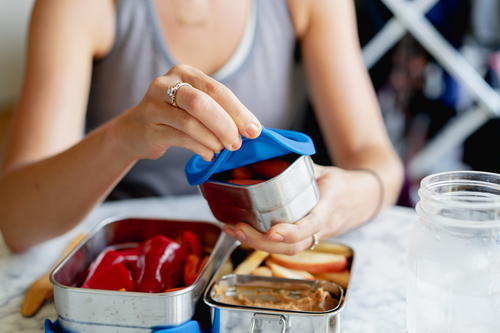
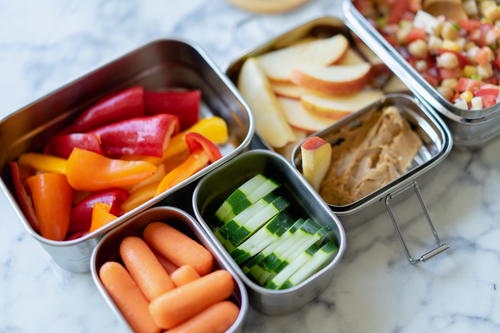
We like to cut up local produce and snack on it when we get to the viewpoint of a trail. We’ll bring cucumbers, tomatoes, carrot sticks, berries, orange slices or olives in our travel containers, and when we eat everything out of them, we stack them and wrap them in a bag.
Save plastic bottles and use a trusty reusable water bottle for travel.
Life changes for the better when you travel with a water bottle that you can trust. Both Dan and I are big fans of our current bottles, and we look for different features in both.
Dan uses the YETI Rambler 26 oz Bottle and he likes the puncture-resistant kitchen-grade stainless steel look with an extra-wide mouth opening. It’s dishwasher-safe, and the leak-proof cap has a three-finger grip on top.
I use the 15 oz S’ip Stainless Steel Water Bottle. It is vacuum-insulated, double-walled and has a narrow mouth, which is my preference for style. I like the slim style and the way it fits into a mesh pocket of my daypack.
I can’t believe I used to travel without a stainless steel water bottle, but I am glad I found one I now love and can’t function without. I can’t imagine how many plastic bottles Dan and I have saved over the years by filling our bottles at water coolers and fountains, and by using them for tea, coffee and seltzer.
No matter where we are, whether it’s just outside of town in Montauk, NY or on the other side of the world in Hanoi, Vietnam, we’re filling up our reusable water bottles to be sustainable.
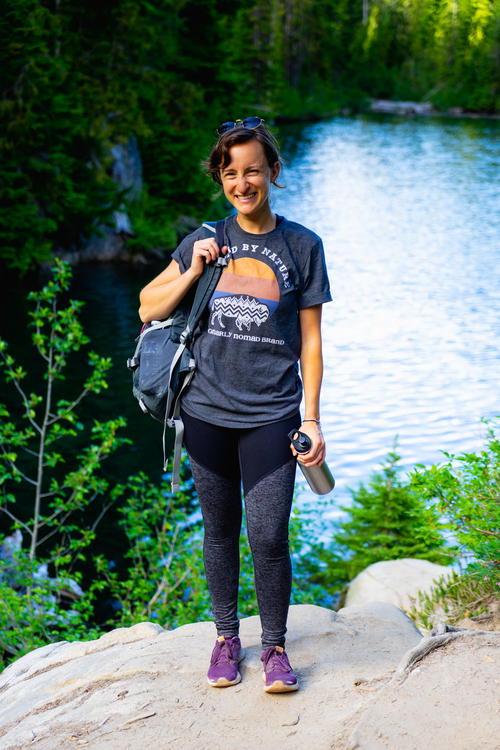
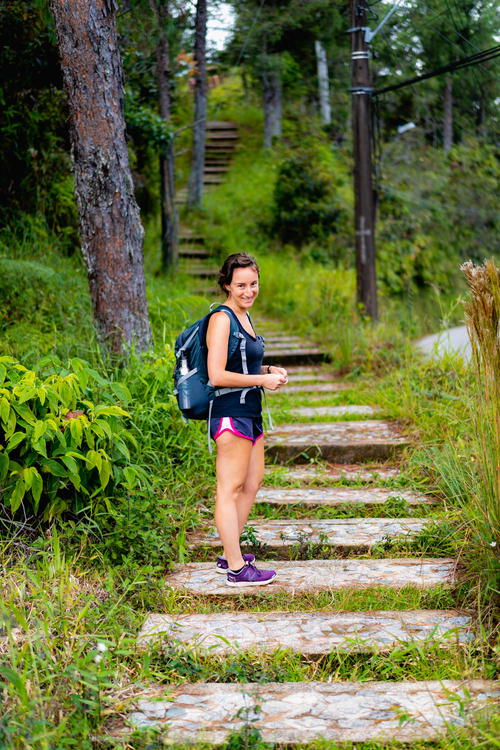
Use a ride-share app and literally share a ride.
You’ve probably used an app for travel by now. To get around in another country, we like using rideshares for safety, and also in order to pay with credit. When it comes to being environmentally-friendly, the best way to maximize eco-friendliness with these apps is to choose an option like pooling.
In Peru, Colombia and Mexico, we used Uber often to take rides from neighborhood to neighborhood. Choosing options like UberPool allows a driver to pick you up and drop you off with a passenger who’ll take the ride also, because they have a similar trajectory.
Not only is this a way to save a buck here and there, but in massive cities, this is a way to do our environment a favor and lessen our carbon footprint, if the only way to get somewhere is by car.
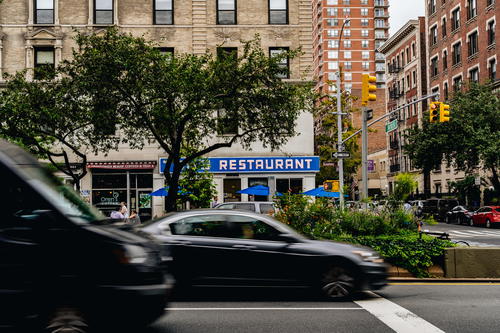
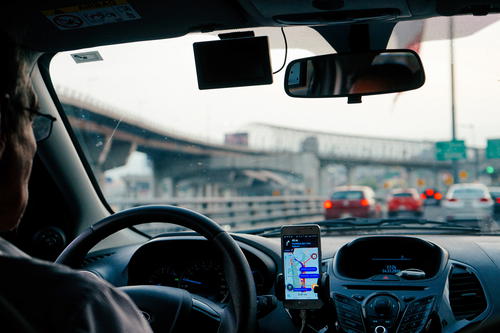
Use bikes or scooters and walk where you can.
We try and walk, whenever we can, as it’s a great way to take in a city. In some places, walking can be tough if distances are far or if the terrain is not safe. While we were in Myanmar, the best way to get around Bagan was by scooter (e-bike as they call it). We also used bikes to get around Inle Lake, which was a great way to get exercise and enjoy the landscape.
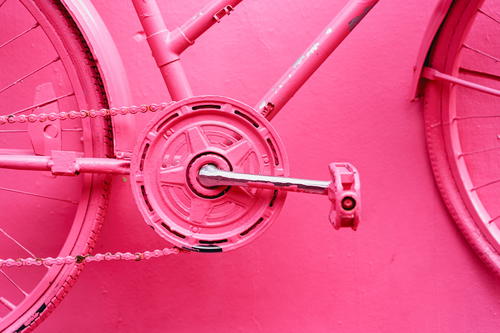
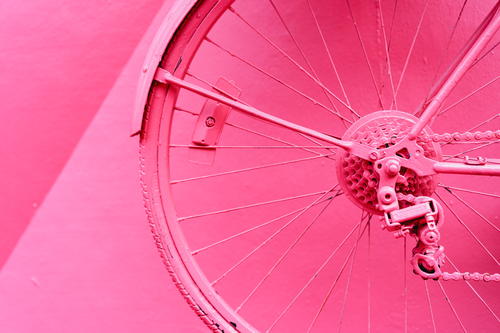
Drink your coffee in a ‘real cup.’
Why should you drink your coffee in a mug, and not a throw-away cup made of paper or Styrofoam?
First, every time you use a single-use cup, you’re putting it in the trash after you’re done (you’re probably not reusing Styrofoam or a soggy paper cup the next day, right?).
It then becomes waste and gets sent to a dump, and the world already has too much garbage. Use a mug or cup from the cafe, and they’ll be glad you asked.
Second, if you use a mug or glass from the cafe, you can take pretty photos of coffee, and everyone loves pretty photos of coffee!
No one ever asked for a Styrofoam cup as a prop in a photo, so next time you’re in a cafe and have time to sit down, ask the barista before they pour your drink for a “to-stay” cup.
Then, pose your latte or cold brew with flowers, glasses or a magazine, and voila!
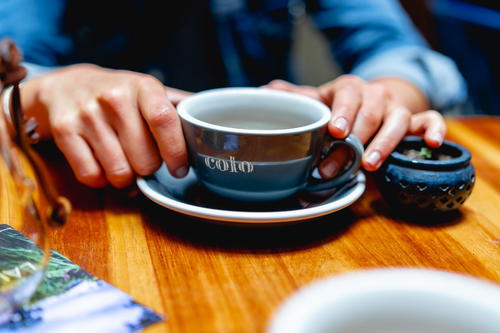

Bonus points for traveling and making your own coffee! This takes it to the next level. Plus, the guide mentions a nice travel coffee mug!
Buy local produce (and stay healthy!).
Lessen your carbon footprint and buy local! It helps out the local economy and local people, and encourages their businesses.
When traveling long-term, we were able to make choices and form habits that aren’t possible when we travel faster and for shorter periods of time. For example, one of our favorite health habits is that we always try to stay in accommodation that has a kitchen so that we can cook.
When we have the luxury of cooking, it’s then up to us what we choose to buy to cook. When shopping in supermarkets and local markets, we consider what’s local (it’ll be freshest and have the smallest carbon footprint) versus what’s imported (more expensive, likely less fresh and a higher carbon footprint).
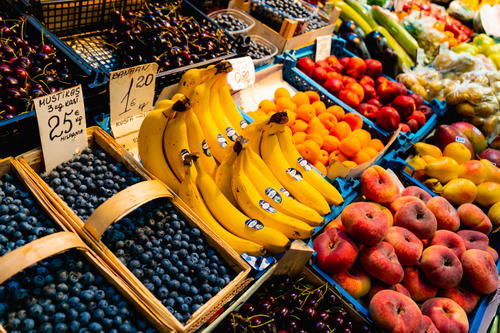
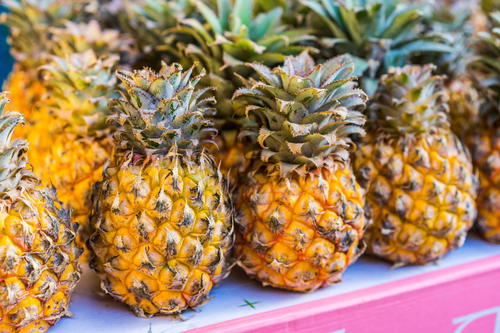
This was very apparent in Estonia, where the cheapest and most local goods were potatoes, carrots, root vegetables and herbs like dill, and in northern Vietnam, where buying pineapple, onions, sugarcane and bananas was far more affordable (and environmentally-friendly) than purchasing apples imported from New Zealand at $5 or $6 per kilo.
The apples example made it most apparent to us about the cost of goods when they’re not local, because, being from the northeast, apples are super cheap when they’re in season during our autumn.
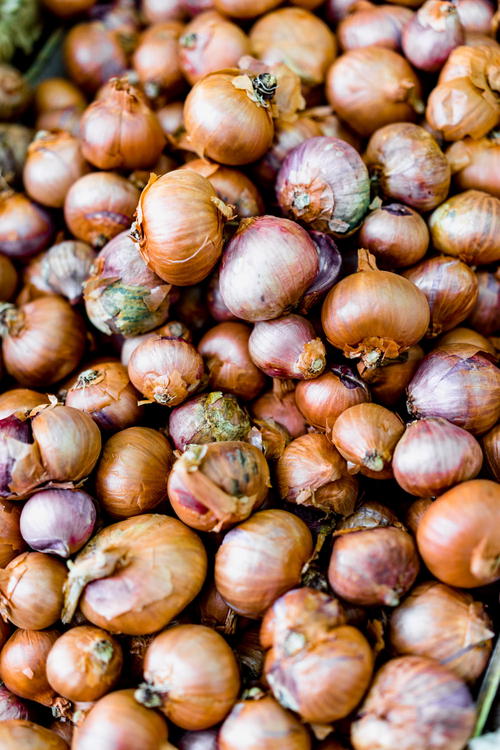
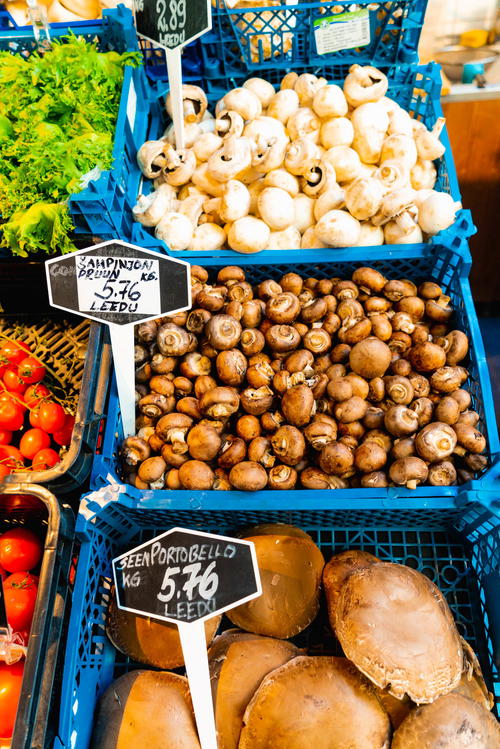
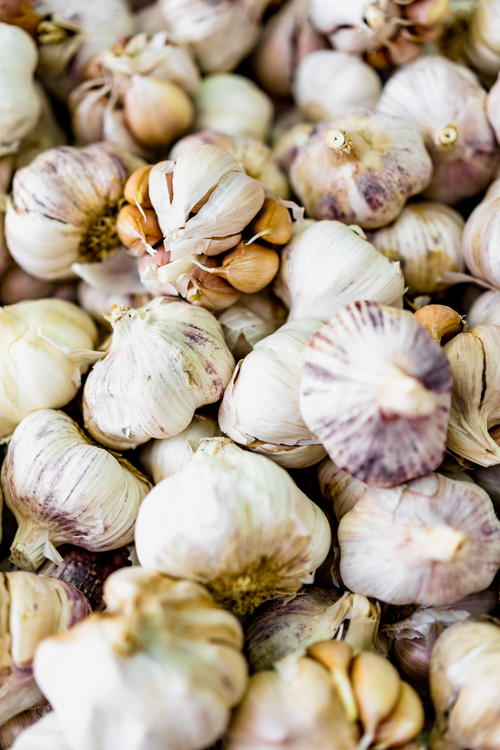
Lastly, buying local produce will introduce you to awesome fruits, vegetables and flavors, like the mamey of Mexico (so creamy), the pitahaya of Colombia (so sweet) and the North Sea fish of Latvia (we don’t have these at home!).
Ask about recycling in your area, even if it’s not clear.
In Taipei, we had to get in touch with our Airbnb host’s landlady to have our trash and recycling taken out. Taipei doesn’t have dumpsters or trash disposal areas, and doesn’t have too many public garbage cans at all — this is to make people aware of their waste, and to keep the city clean.
Because our Airbnb did not have a jug water cooler, we bought purified drinking water in the largest amount we could, which was a 6-liter bottle from the convenience store nearby. After a few days, we wanted to recycle our empty jugs, but had no idea where to do it.
The landlady was glad to come help us, and we were relieved that our recyclable items were not going to go into the trash. It helps to ask, if you’re unsure!
Ditch the single-use plastic bags in supermarkets, drugstores and convenience stores.
Trade single-use bags for a durable tote bag.
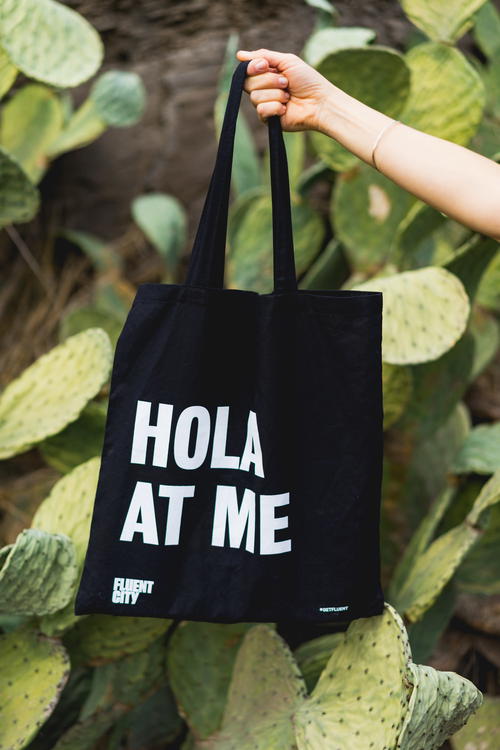
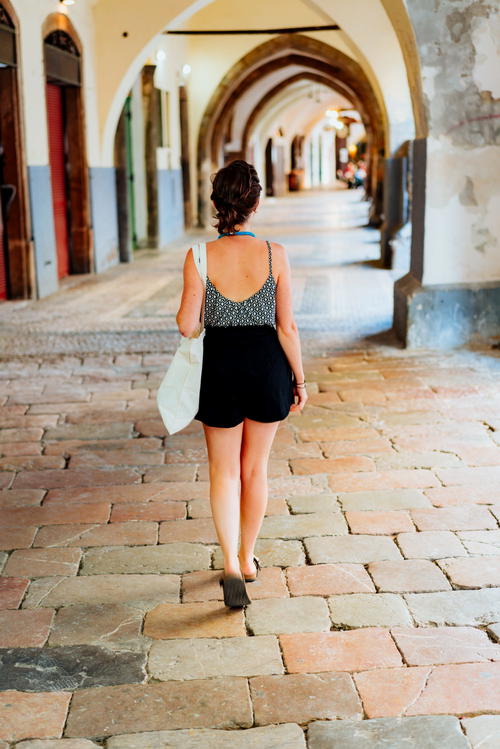
Much of the world is now acknowledging that plastic bags are terrible for our Earth. Many people are trying to minimize their use of them; however, we found that across Asia and Latin America, we would be offered plastic bags at every store, even if we didn’t need one.
For this reason, I usually walk around with a canvas tote bag that I like the look of, like this one. I use it as a purse, as it’s a bag that’s big enough to hold my water bottle, wallet, phone, groceries and any items I pick up to buy during the day. It also helps me say ‘no’ to being given a plastic bag in a store.
Try going vegan or decreasing meat for a week.
It’s now commonplace knowledge that red meat is one of the highest carbon contributors in the food sphere. Livestock farming produced an incredible amount of greenhouse emissions and a big world-wide carbon footprint.
What can you do about it? Try decreasing meat intake, or eliminating meat completely. This is actually something we do on the regular at home and when we’re not traveling.
When we do travel, and wind up cooking in our Airbnb or apartment kitchen, we typically cook vegan or with eggs. We also seek out countries that are great for vegetarians.
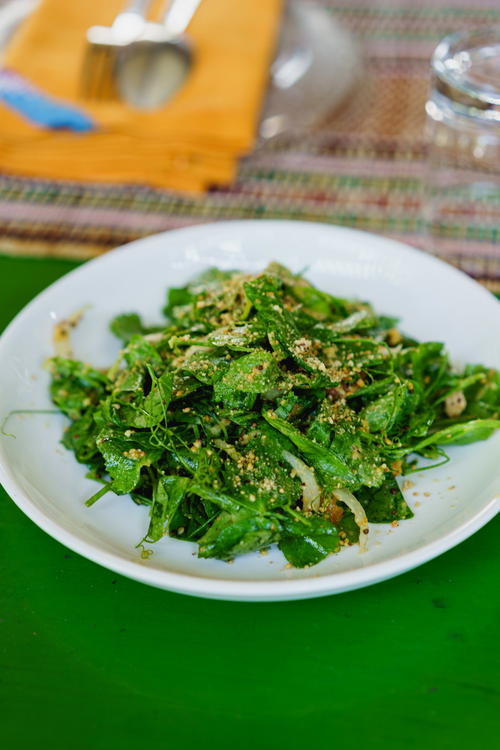
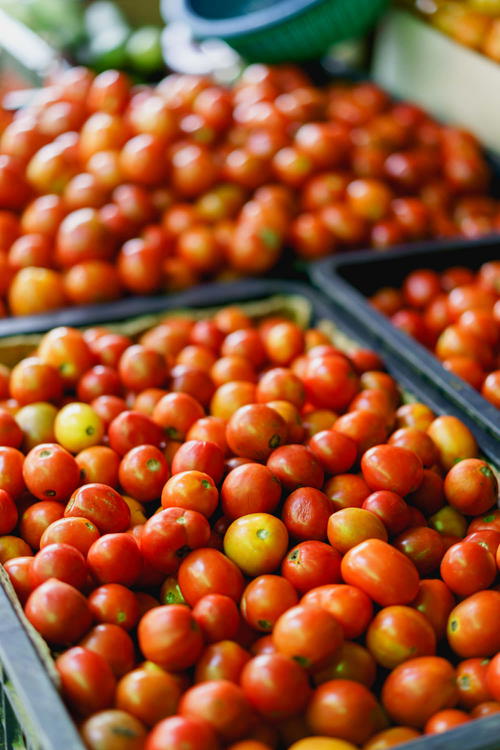
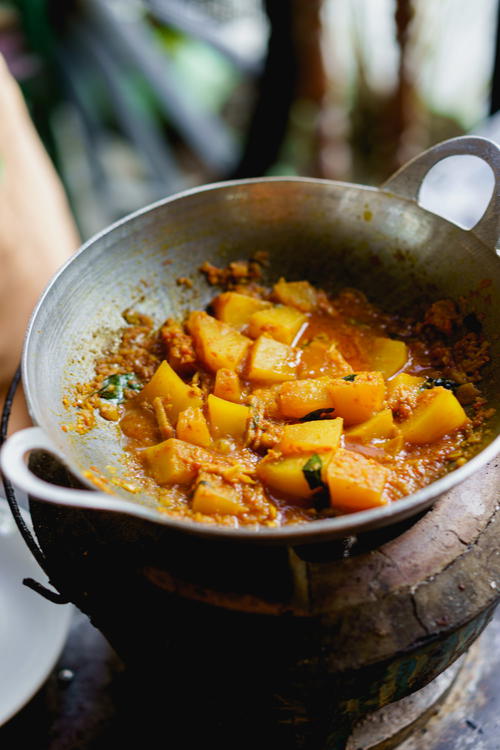
There are many very ‘meaty’ cuisines in the world, but there are also lots of vegetarian cultures, or cultures that consume meat in moderation (unlike in the USA and the West). For example, Hindu cultures like in India don’t consume much meat from cows. Buddhist cultures place a heavier emphasis on consumption of vegetarian foods, and Jainist culture does not contain any animal products at all.
There’s health beyond meat, which is the great news, and if you’re feeling up for it, an incredible challenge is going raw vegan. If you want to lose weight, lower cholesterol or simply try a new eating habit, travel is a cool time for that because you’re already trying new things! Plus, the fruits and vegetables in places we’ve traveled like Colombia, Taiwan and Mexico have been just delicious, and always fresh.
Reuse plastic bags if they get wet or dirty by leaving them to dry overnight and use them again.
If you do happen to receive plastic bags, save them and reuse them again and again. We use plastic bags that we always flatten out and bring from home, and use them repetitively for shoes, laundry items, wrapping food and more.
If we’re carrying something and the bags get wet, we leave them out to dry on a door handle overnight and continue to use them in the future. This way, we’re reusing the bags without wasting.
Hang clothes instead of using a dryer.
As Americans, we find out by leaving our home country that the rest of the world doesn’t love dryers like we do. In fact, in a lot of the world, dryers don’t exist! I first found this out when I studied abroad in Hong Kong and the dryers in the washing machine space (which was actually on the roof) didn’t quite work like the ones I knew at home.
When I moved to Shanghai, I didn’t see a dryer for two years! I hardly knew anyone who had one in their home, and I dried my clothes on a rack for the two years I spent in Mainland China.
Having lived in different parts of the world now, Dan and I have seen our share of dryers that work, dryers that half-work and dryers that don’t exist. In the damp winter months of Peru, we luckily had a dryer (drying our jeans otherwise took five days!), but we didn’t have one in Medellin, Colombia. In the Canary Islands, I did various loads of laundry at Nine Coliving and hung every single item on clotheslines in the laundry room and on the laundry lines on the roof. It dried fast, due to the dry climate!
Hanging clothes to dry prevents them from getting fried in a dryer, and also saves heaps of energy. Therefore, we’ve learned to dry only the clothes that would take forever to dry otherwise, and for the rest, we hang them on hangers and drying racks to air dry.
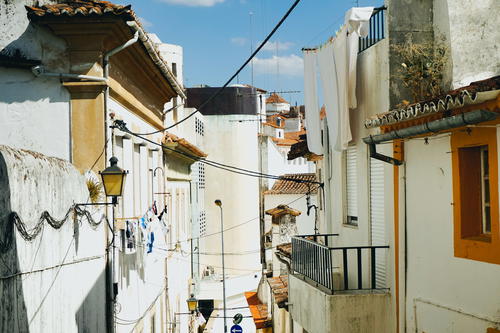

Turn off the water during different parts of your shower.
Going to places like Israel or Cape Town, South Africa, will teach you a whole bit about conserving water. We’re taught to conserve water when we can, but in some places on Earth, conserving water is a very serious topic.
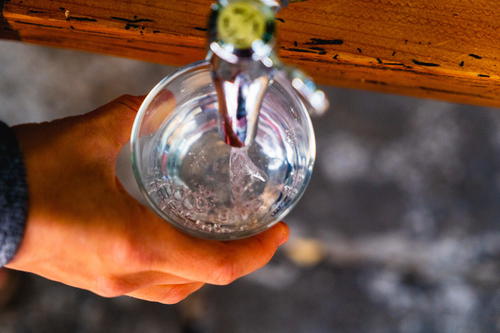
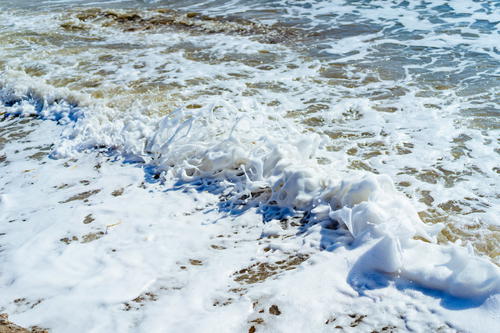
My first time in Israel, we were advised to take short showers and always turn off the sink when brushing our teeth. We were told to never, ever waste water, as it’s a very precious resource in the Middle East — even more precious than at home in the US.
In Cape Town, South Africa, any recent visitor to the city will tell you that due to a recent water crisis, showers were cut down to 90 seconds. This’ll teach you FAST how to conserve water while bathing!
It’s lessons like these that teach you how little water you really need to do everyday chores and tasks, and how much you can save. I’m glad I’ve left home to see how the rest of the world saves water, so that I can remember how to save water, too.
Tell maid service not to change your towels and sheets.
If you’re staying in a hotel for more than a few days, chances are your towels will be replaced after a few days, and maybe your sheets as well. Consider that at home, you probably (feel free to prove us wrong) don’t wash your sheets and towels every other day, so in a hotel, this is also an unnecessary service.
If you see maid staff in the hotel, mention that your towels and sheets can stay un-changed, in order to minimize loads of laundry. This saves water and it’s one of the easiest ways to create less water waste and less electricity spent on dryers.
Turn your disposable silverware into use-again silverware.
I feel like Mary Poppins when I take various odds and ends out of my bag like plastic spoons when someone else least expects it, but I enjoy being prepared. I also enjoy making multiple uses out of things that are otherwise single-use and considered to be disposable.
If we use a plastic spoon every day of the year and throw it out every time, that’s 365 thrown-away spoons!
To avoid this, if you have durable plastic silverware, wash it like it’s real silverware, and use it again! You can keep plastic spoons, forks and knives in your backpack or purse (for that time when you get street food and need an eating utensil) and always be prepared, while also reusing plastic products.
Always turn off the AC, heat, fan and light when you leave your accommodation.
I grew up being taught to be conscious of turning off appliances and lights when I left a room. After I began traveling, I learned that some places, for example, my college dormitory in Hong Kong and a recent hotel in Vietnam, give you a way to conserve energy when you leave a room.
In Asia, it can be common to be given a card to pop into a slot in your hotel, hostel or Airbnb. The slot in which you’ll put it is linked to all the electricity in the room and makes it able to be turned on.
When you leave the room, you take the card with you (sometimes it’s the room key) and that way, you’re unable to use power while you’re out of the room. It’s a great way to save energy and power.
Even if you are not working with a card and slot scenario, be mindful of turning off A/C, heat, lights and fans when you leave your accommodation or any other type of room you’ve been in. This helps avoid overuse and your host will always be thankful for your habits.
Use your travel gear until it breaks. Literally.
I own gear that I love, so it’s no surprise that I’ll wear my backpacks to shreds (not so literally) before getting rid of them by donating them to Goodwill or another charity.
I replaced my daypack when my Camelbak 20L daypack started ripping in the pockets and looked dingy. I replaced it with the Away Daypack and I hope to use this until it breaks as well.
We reviewed the Away Daypack. Check it out and we how you like it!
I also don’t retire an article of clothing unless it’s really broken. I’ve had my dip-died sarong for almost 15 years, and because I only use it on tropical trips sporadically, it’s survived the test of time and is in perfect condition. The same goes for my jeans, shoes and jackets — I only replace them if they’re not usable anymore.
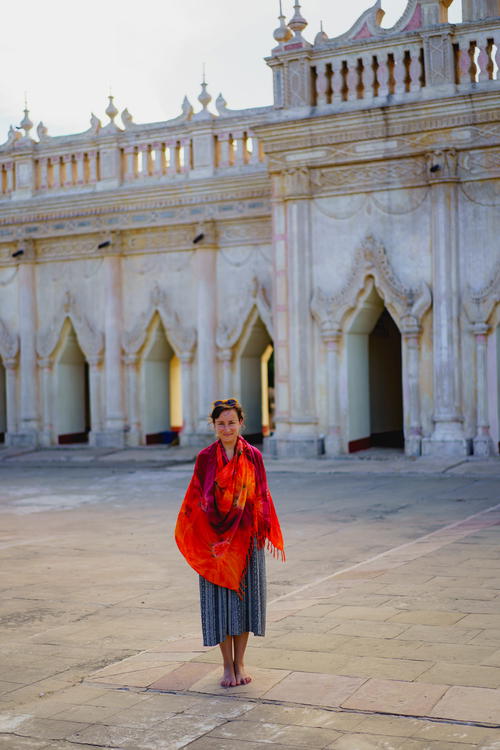
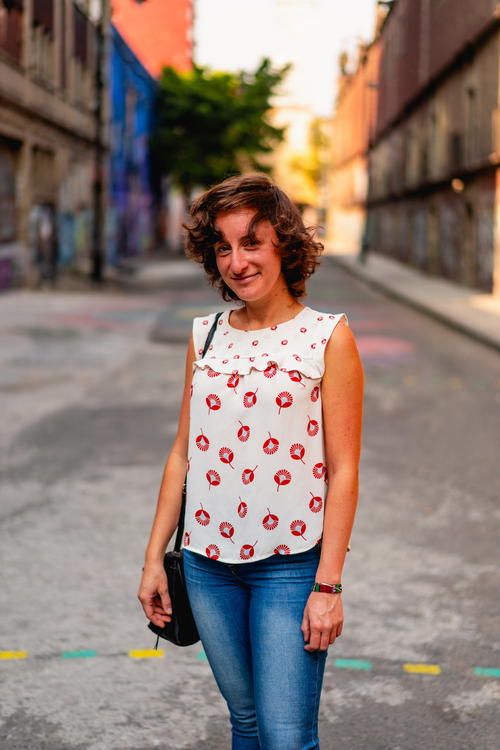
The moment you stop consuming is the moment you are essentially reusing what you already have. Doesn’t that feel good?
Travel more slowly.
Sure, we all want to see as much as possible when we travel. It can be tiring, and we feel like we have to “pack it in.” For one thing, staying somewhere longer can snag you discounts, like staying in an Airbnb for more than two weeks and getting a percentage discounted from the total cost.
In terms of being eco-friendly, the fewer private rides, bus trips and flights you take over a very short period of time… the better! We’ve learned to enjoy and get to really know a place, rather than zipping from city to city every 36 hours, which is taxing on our wallets, our sleep schedules and also, the environment.
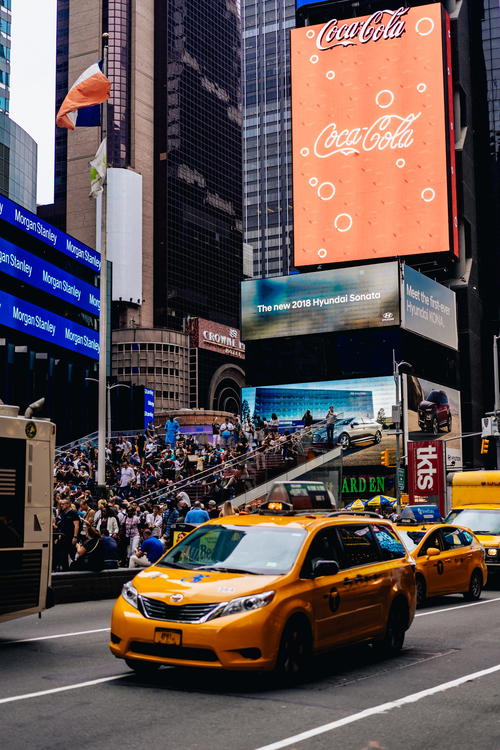
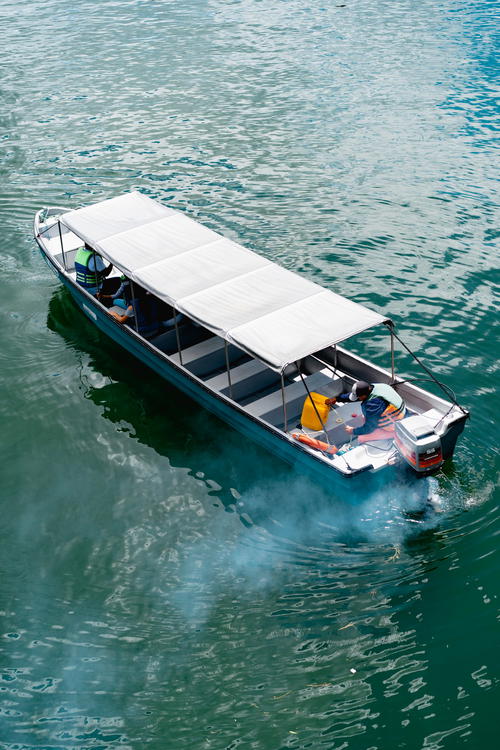

Opt for glass bottles over plastic bottles when buying a drink at a store.
Growing up, and before plastic was deemed evil by society (thankfully!), I never would’ve gone into a store and preferred a glass bottle over a plastic one.
Plastic is evil. If you’ve seen what I’ve seen on Facebook lately with my friends sharing news articles detailing the dark sides of recycling, it seems that only a small portion of what we think is getting recycled, actually is.
This means that the average plastic bottle is turning into trash.
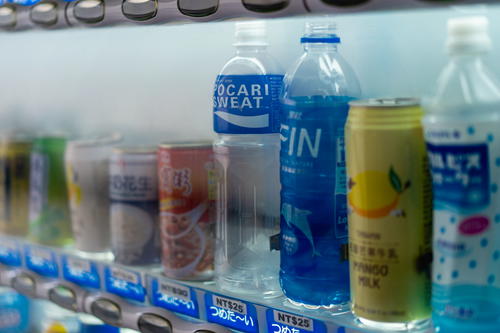
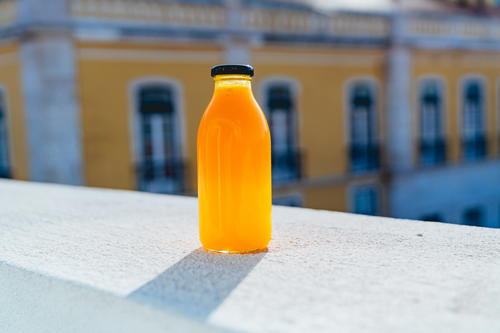
Glass is a better option. Also with glass, you can use the glass for alternative future uses. In fact, some of my favorite ‘souvenirs’ have been glass Red Bull bottles (mini size) from Thailand, glass baijiu bottles from China and mini glass bottles of pisco or Quetzalteca from Guatemala.
What else can a glass turn into? A wine bottle can become a flower vase, or a collection of similar glass bottles can become an aesthetic in a book case. Glass is so much more than plastic, which will dent and become waste.
Teach someone in another country about the sustainable tips here.
What you’ll find through travel, and it’s what we’ve found, is that people in other countries have not received the same education we have about sustainability and caring for the environment.
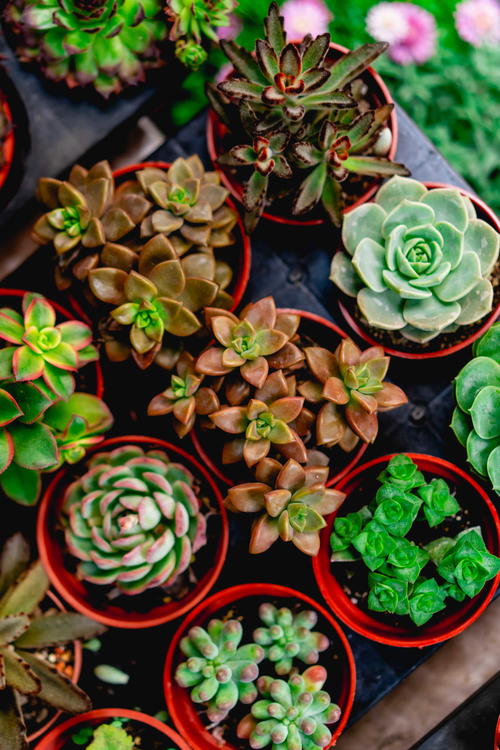
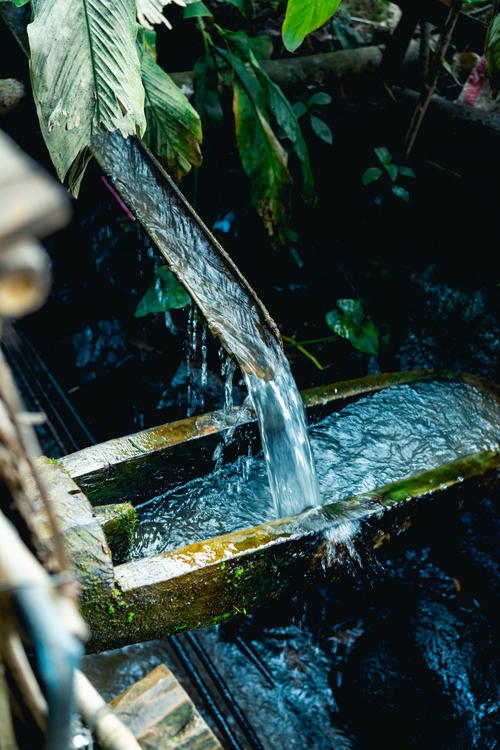

It’s why you’ll see so much bagged trash in Vietnam, bottles littering rivers in China and waste strewn in the streets in the Philippines. Different parts of the world prioritize their environments differently.
If you have the chance, speak with a shop owner, either in local languages or through a useful travel app like a translation app to express your opinions. Teach someone about ending usage of plastic straws and that no one really needs to drink with a straw, or talk about ending use of plastic bags or plastic single-use cups.
If you’re in such a place of advising a business abroad, recommend things like straws made of compostable goods, compostable silverware, separating waste into compost, recycling and trash and any other idea you have. You can help make a difference. It all starts with you and your actions.
✈️ Did our travel tips help?
We share honest, experience-backed advice to help you with smoother trips. If our suggestions saved you time or stress, treating us to a coffee lets us keep researching the next post.
Fuel more travel adviceYou may also like
-
![]()
19 Exciting Solo Travel Destinations in 2026 (From Real Travelers)
What are the best ideas for unique solo travel destinations? Check out these popular cities and countries for traveling on your own — some may surprise you.
-
![The Quince child lunchbox filled with baby food puree squeeze tubes and happybaby teether crackers]()
How to Feed a Baby During Travel (Nursing, Bottles, Formula & Solids)
Whether feeding your baby by nursing and breastfeeding, with bottles, formula or solids, there are lots of products to help with feeding a baby on the go. See my best travel tips for your next trip!
-
![]()
How to Make the Most Out of Group Travel (And Enjoy a Group Trip)
Group vacations are unique, and planning a group trip can get challenging. Here’s how I’ve come to enjoy group trips and some ways I find that everyone can have fun.
-
![A woman in a black dress and a straw hat is standing on the side of the road.]()
Tips for Planning a Babymoon (What You Should Know)
What is a babymoon, why should you go on one, and when should you take a babymoon? See my babymoon trip tips for for couples taking babymoons before a new baby!
-
![]()
How to Get Global Entry for Your Child: Guide for Parents
Figuring out if your baby or child needs Global Entry? Here are my top tips for getting Global Entry for a kid or minor, from how to apply to what to expect.
-
![]()
15 Best Ways to Eat Healthy during Travel (my Favorite Tricks)
What are some ideas for how to eat healthy during your trip? Check out our best practices and my personal tricks, for healthy eating that you can try during travel.
